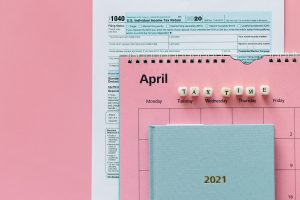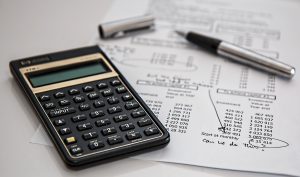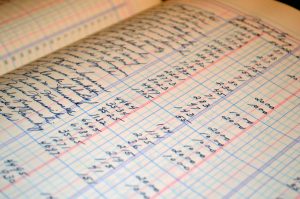
The Ultimate Guide to Passing Accounting 101
Accounting, often considered a tough subject, is considered a core subject of business and finance. Due to the fundamental nature of business and finance, a majority of students have enrolled in Accounting 101. Accounting 101 offers an introduction to accounting and provides students with the foundational knowledge necessary to pursue a career in finance or business. However as already stated, accounting 101 often seems challenging for many students. Especially, if the students sit in the examination without any necessary preparation, then the exam would be a nightmare for them. In this interesting guide, we will provide you with everything you need to know to succeed in Accounting 101 and pass your first accounting class with flying colors.
Understanding the Basics of Accounting 101
Before taking any accounting course, a basic understanding of accounting is essential. Here is a brief intro about accounting and the different types of accounting.
What is Accounting?
Accounting is the process of recording, classifying, and summarizing financial transactions to provide information that is useful in making business decisions. Accounting is concerned with collecting, tabulating, and analyzing financial information for determining the fiscal health of financial entities. The accounting concepts are used and exploited by investors, creditors, managers, and other stakeholders to make informed decisions regarding the allocation of financial and other business resources.
Different Types of Accounting
Like any other field of knowledge, accounting also has many sub-branches or types. Different types of accounting are financial accounting, managerial accounting, tax accounting, and auditing. Financial accounting focuses on providing financial information to external stakeholders such as investors, creditors, and government agencies while managerial accounting, on the other hand, provides financial information to internal stakeholders such as managers and executives to help them make informed business decisions. Similarly, tax accounting involves preparing tax returns and advising clients on tax-related matters, while auditing involves examining financial records to ensure their accuracy and compliance with applicable laws and regulations.
Basic Accounting Concepts and Principles
While these varied accounting types involve advanced accounting concepts and calculations. But pursuing your career in accounting or any business field requires an understanding of the basic accounting concepts and principles. The basic accounting concepts include the accounting equation, debits and credits, the double-entry accounting system, and the different types of financial statements. Additionally, you must build a comprehensive accounting-related vocabulary. The terms like assets, liabilities, equity, revenue, expenses, and net income must sound familiar to you. And for learning basic accounting concepts and terms, the Accounting 101 course is mandatory.
Why is Accounting 101 Important?
Accounting 101 is the core accounting and business subject that must be passed for becoming a successful accountant or financial professional. This course covers the basics of accounting, including the language, concepts, and principles used in the accounting field. The basic knowledge and accounting principles offered by this course are essential for anyone looking to pursue a career in finance or business, and without them, one will struggle to understand more advanced and complex topics in the field.
In addition, accounting 101 is often a prerequisite for more advanced accounting courses. Therefore, if you are pursuing a bachelor’s or master’s degree in accounting or business then you must pass this fundamental course. Furthermore, the knowledge and skills offered by this course are valuable for anyone who wants to manage their personal finances more effectively. Understanding accounting principles and concepts can help you make better financial decisions, avoid costly mistakes, and plan for your financial future.
Common Challenges of Accounting 101
Any student taking Accounting 101 expects to face certain challenges. These challenges are especially daunting if you’re new to the accounting field. Accounting is a fairly-complex subject that requires a lot of practice and understanding of concepts. Here is a list of the common challenges that students face while taking Accounting 101:
- Understanding Basic Accounting Concepts: Like any other specialized field of knowledge, accounting has its own set of unique terms and concepts which can be overwhelming for beginners. For beginners terms like debits and credits, balance sheets, income statements, and cash flow statements can be confusing initially but with time, all these concepts will make sense and will pave the way for understanding more complex concepts.
- Time Management: For beginners, accounting concepts appear too complex, and therefore understanding these novel concepts requires a lot of effort and time. Besides understanding these concepts, students need to complete assignments, read textbooks, and attend lectures. Therefore, effective time management becomes crucial for acing this course. Usually, creating a study schedule and sticking to it can help students stay on track.
- Practice Makes Perfect: Like mathematics, accounting is a subject that requires practice to master. Many students struggle with the practical aspect of accounting as it requires attention to detail and accuracy. Consistent practice can help students develop their skills and gain confidence in solving accounting problems.
- Calculations and Formulas: As stated in the preceding paragraph, accounting bears much resemblance to mathematics. Like mathematics, accounting involves a lot of calculations and formulas. With patience and regular practice, students can understand and apply these formulas correctly.
- Keeping Up with the Course Material: Though Accounting 101 is a basic accounting course but it is also a fast-paced course that covers a lot of material in a short time. Again time management and a realistic study plan will enable students to keep up with the course material. It’s essential to attend lectures regularly, take notes, and review the material after every class.
In conclusion, Accounting 101 can be a challenging course for many students, but with consistent effort and practice, it’s possible to ace it with flying colors. Understanding basic accounting concepts, managing time effectively, practicing consistently, and mastering calculations and formulas can help students overcome the common challenges they may face while taking the course.
Preparing for Accounting 101
After opting for Accounting 101 class, you must strive hard for passing it with good grades. Here is how you can pass this tough course.
i) Necessary Tools and Materials
The first prerequisite for preparation for this challenging course is to have access to relevant course material. In addition, certain academic tools like a calculator and access to accounting software if required by the course, are also necessary for the course. Additionally, you may want to invest in other study materials such as flashcards or online resources to supplement your learning.
ii) Setting Realistic Goals
When you have the appropriate study material and allied tools, the next step is to set realistic goals. Focus on your weak areas and dedicate more time and energy to such weak areas. Determine what you want to achieve in the course and set realistic goals that align with your expectations.
iii) Creating a Study Schedule
After setting realistic goals, now it is time to create an implementable study schedule. Allocate extra time to advanced or difficult accounting topics and set aside some spare time for practicing calculations and formulae application. You will also need ample time for completing assignments on time. Finally, you must spare some time for reviewing course material ahead of your midterm and final exams.
iv) Finding a Study Group or Tutor
While solo study also yields benefits but finding a study group or able tutor can be extremely helpful in preparing for Accounting 101. Studying with others allows you to ask questions, discuss difficult concepts, and get feedback on your work. It can also help keep you motivated and accountable. If you are struggling with the material in the group study, then consider hiring a tutor to help you understand the concepts better.
Mastering Accounting 101
While the above-mentioned techniques will help you better prepare for your accounting course but the following tips will help you master the tough accounting principles and concepts.
a) Financial Statements
Financial statements are an integral yet challenging component of the Accounting 101 course. Financial statements provide information about a company’s financial performance, including its assets, liabilities, equity, revenue, expenses, and net income. Some examples of financial statements include balance sheets, income statements, and cash flow statements. Focusing on the financial statements will not only help you to master this course but will be beneficial for your practical career as an accountant.
b) Recording Transactions
Another skill for learning in this basic accounting course is recording financial transactions. In the course, you will learn how to record transactions using the double-entry accounting system and understand the difference between debits and credits. By focusing on mastering this skill, you will not only ace the accounting course but will be familiarized with other related beneficial concepts like assets, liabilities, equity, revenue, and expenses, and know how to record transactions in each account.
c) Accounting Software
Besides theoretical concepts, accounting is like mathematics and involves fairly complex calculations. Therefore, a range of tools are available for understanding various concepts of accounting. The accounting software used for accounting calculations is becoming increasingly popular in this age. Therefore, it is crucial to understand how to use accounting software effectively. You must be familiar with the different types of accounting software available and know how to use them to record transactions, generate financial statements, and analyze financial data.
d) Balancing Accounts
Balancing accounts is also an essential part of ensuring the accuracy of financial records. You must know how to balance accounts and reconcile them to ensure that your financial records match up with your bank statements. This skill requires attention to detail and by mastering this skill, you will be in a good position to go for advanced accounting courses.
e) Analyzing Financial Data
Finally, critical analysis is a rare skill that a successful accountant must strive for. Accounting 101 focuses on developing the skill of analyzing financial data. You must know how to use financial ratios and other tools to analyze financial data and make informed business decisions. This requires a solid understanding of accounting principles and the ability to interpret financial statements accurately.
By focusing on these critical components of Accounting 101, you can not only master this course but can pursue more advanced courses for a successful career in accounting and business.
Navigating the Accounting 101 Final Exam
After you have prepared for your exam and mastered the tough concepts then you can still strive for better grades through navigating your accounting 101 exam.
- Reviewing Course Material
When you are running against the time and there is little time left for the final exam. Then you have to skim through all the course material. This includes reviewing your notes, textbook, and any supplementary materials provided by your instructor. Make sure you understand all the concepts covered in the course and seek clarification on anything unclear.
- Practicing Problems and Exercises
The second part of your pre-exam preparation must include practicing problems and exercises. This will help you identify areas where you need more practice and improve your understanding of challenging concepts.
- Time Management Techniques
Time management techniques are not only deemed valuable during the course but these techniques will also save your day through your exams. Determine how much time you have until the exam and allocate your study time accordingly. Break down the material into smaller sections and focus on mastering each section before moving on to the next. Also, during the exam paper divide your time appropriately so that you can solve all the questions of the paper.
- Common Mistakes to Avoid
Many students flunk due to very common pre-exam mistakes. Some of the common pre-exam mistakes are procrastination, cramming, and not seeking help when needed. To avoid these mistakes, start studying early, create a study schedule, and reach out to your instructor or classmates if you are struggling with any topic.
- Mock Exams and Test Banks
Finally, checking one’s understanding through mock exams is a time-tested technique that really helps. With no prior knowledge of the accounting field, accounting 101 is often seen as one of the most challenging courses by students. But sufficient preparation and testing yourself through mock exams can help you pass the course with flying colors.
Mock exams are practice exams that simulate the real exam experience. These exams are designed to help you identify your strengths and weaknesses in various topics covered in Accounting 101. Mock exams are an excellent way to measure your progress as you study for the real exam.
Another way to familiarize yourself with sample exam questions and answers is to seek help from test banks. Thanks to the ICT revolution, now students have access to many helpful study resources with just one click. Test banks are one such helpful study resource that any student can access for preparing for the exam.
Test banks are collections of questions and answers that cover the topics taught in Accounting 101. Test banks are usually provided by textbook publishers, instructors, or 3rd party providers like https://exam-banks.com/. Test banks are an excellent resource for students looking to practice their accounting skills and prepare for exams. Using test banks can help you identify the types of questions you’re likely to encounter during the actual exam and help you develop effective strategies for answering them.
Tips for Success in Accounting 101
We hope that with sufficient preparation and these tips and tricks, you can easily crack your basic accounting course. However, there are some more tips for better assimilating the accounting concepts taught during the Accounting 101 course.
- Active Listening and Note Taking
Active listening is a rare yet rewarding skill. In addition to active listening, note-taking will help you succeed in your Accounting 101 course. Pay attention during lectures and take detailed notes on the material covered. Review your notes regularly to reinforce your understanding of the concepts and ensure that you retain the information.
- Seeking Help When Needed
A majority of the students feel shy when seeking help from fellow students. This behavior can cost you your course if you feel reluctant to approach other students for help. If you are struggling with the material, do not hesitate to seek help. Either reach out to fellow students or to your instructor or tutor for assistance.
- Staying Organized
Though staying organized is not directly related to your accounting course but if you stay organized throughout the course and keep all of your course materials, including notes, textbooks, and assignments, in a designated place. Then definitely, this skill will save you time and can be beneficial for your success in the course.
- Practicing Consistently
As stated in the above paragraphs that accounting and mathematics have significant resemblance. Both subjects have calculations and require regular practice for mastering these calculations. So, allocate time each week to practice problems and exercises to reinforce your understanding of the material and improve your problem-solving skills. The more you practice, the better you will perform during the final exam.
- Maintaining a Positive Attitude
Finally, attitude matters. Maintaining a positive attitude throughout the course and especially during the final exam is critical for success in the Accounting 101 course. Believe in your ability and try to master the material. Do not bother setbacks and welcome challenges as challenges are meant for growing your capabilities. Just stay focused on your goals and remember that hard work and perseverance always pay back.
Final Thoughts on Passing Accounting 101
Passing Accounting 101 may seem daunting, but with the right preparation and approach, you can succeed in this core course of accounting. Throughout the course focus on understanding the basic accounting concepts and principles, and dedicate time to practicing problems and exercises. Seek help when needed, stay organized, and maintain a positive attitude throughout the course. By following these tips and strategies, you can easily ace your Accounting 101 and pave the way for a successful career in finance or business.






